There’s a saying that states your manager can be the defining factor that can make or break yourcareer. A bad manager can set in motion a series of unfortunate events that can be the beginning and end of your career. The saying “People don’t leave jobs, they leave managers” has never been more true, as seen in this Redditor’s story. The author had to deal with a hellish boss who removed her from a project as a form of punishment and also obstructed her promotion.
More info:Reddit
Nothing beats the feeling of leaving a toxic job

Image credits:Andrea Piacquadio (not the actual photo)
The poster had to deal with a boss who made her the target for every company misstep

Image credits:Pixabay (not the actual photo)

Image credits:Gustavo Fring (not the actual photo)
When she complained to HR, he said she needed to have more compassion towards leadership since they never had any management training

Image credits:RDNE Stock project (not the actual photo)

When she requested a promotion, it was vetoed as the VP claimed she was not fit to be a project manager

Image credits:Jo Szczepanska (not the actual photo)
She eventually resigned and joined a new firm who, coincidentally, were working on the project her previous kicked her off from
Image credits:xoxogossipcats
The project manager they put on top of it is grossly incompetent
The Original Poster (OP) was working as a junior project manager at an engineering firm for two years. While there, she was asked to work on two unfamiliar projects due to a departing project manager. While helping compile the final reports, senior engineers reviewed them and found them lacking key information.
The VP lambasted her for allowing the reports to reach the reviewers with such errors. She explained her lack of involvement, stating she had no content information and wasn’t asked to review, only assisting with formatting to meet deadlines. She suggested contacting the project manager and director, her direct supervisor who led the projects for months, who somehow failed to check the reports before review. The VP, still angry, eventually dropped the issue.
They appointed someone with no project management experience or certifications. This individual, uninterested in the role due to their existing full-time job in another department, struggled and sought the OP’s help with the project management software and meeting minute recording.
The VP, learning of the OP’s assistance, held a call with her and other junior PMs. She questioned her involvement, to which she explained she was simply instructing the new PM on the unfamiliar software, offered at his request. She clarified she wasn’t billing the client, eliminatingfinancialconcerns. When she inquired about his preferred method for recording meeting minutes, the VP, despite company policy requiring thesoftware, demanded Word format. After the OP explained the software’s advantages, she shut her down, telling her to “learn her place” and assigning another junior PM to onboard the new one.
The OP, having looked forward to the project, ended the call feeling even more discouraged. She complained to her boss, who refused to get involved, and HR, who advised her to be more compassionate towards leadership. Months later, upon requesting a promised promotion, she learned the VP was blocking it. They even suggested she was unfit for project management and should consider an administrative role. After enduring this series of negative experiences, she left to join a competitor.
At her new firm, she discovered they were working on the same project she was removed from at her previous company. Apparently, her old firm was struggling, and the project manager they assigned performed poorly.
Currently, her new firm is in charge of cleaning up the mess her old firm created

Dr. Sandra Robinson, Professor of Organizational Behavior at the University of British Columbia, identified several common causes of workplace hostility forBored Panda. These include personal traits like poor mentalhealthor communication skills, unresolved issues between individuals, and a lack of conflict resolution skills.
Regarding the author’s situation with a challenging superior, Dr. Robinson mentioned several potential next steps an employee might consider. “There are about four options: One is to leave the company, which is the best option if you are able and the costs incurred are low or negligible for doing so. Secondly is to seek a lateral move, so no longer under the same boss. Thirdly is to wait it out for yourbossto move on and finally to seek to resolve it directly.”
While directly addressing conflict is generally the healthiest and most productive approach, it can be difficult to achieve positive results when a strained relationship or incompetence exists on either side.
“However, it doesn’t hurt to attempt to talk it over with the person one is havingconflictwith and then follow all the advice you can find on healthy conflict resolution strategies in one-on-one conversations,” Dr. Robinson explained.
Commenters applauded the author with many still having questions on the VP’s attitude

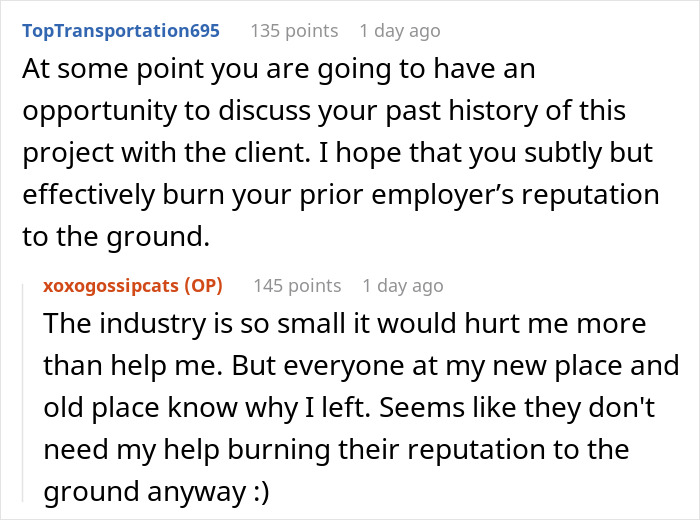

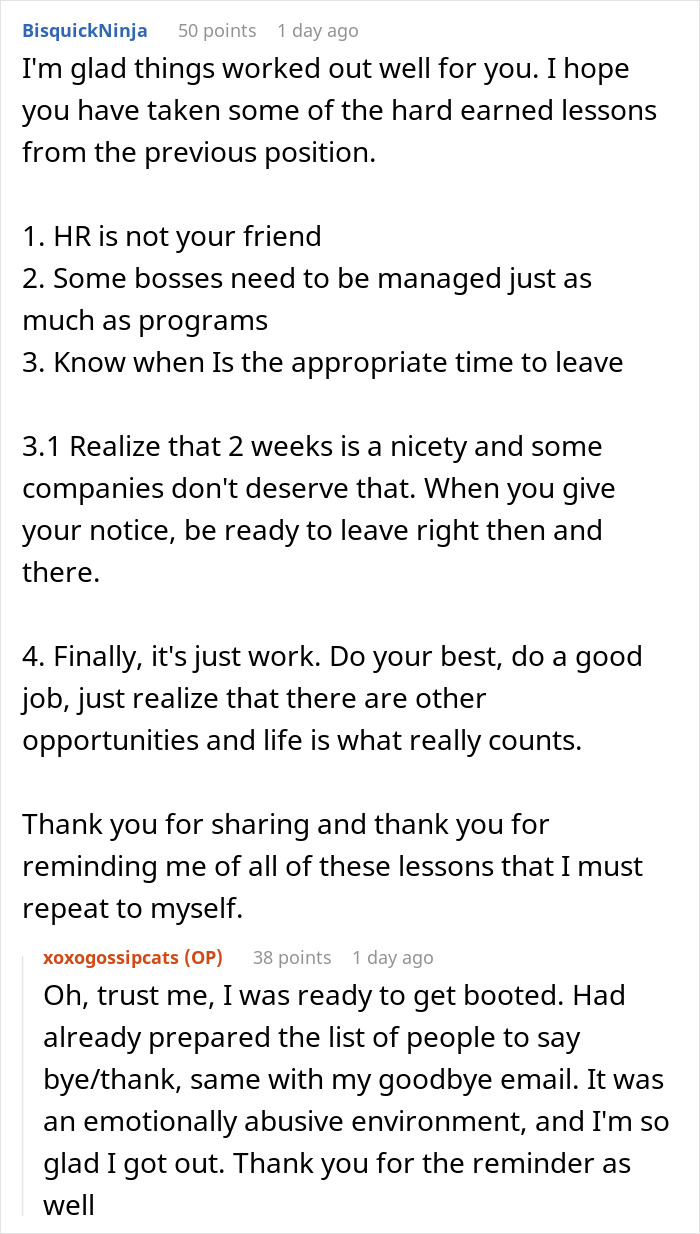
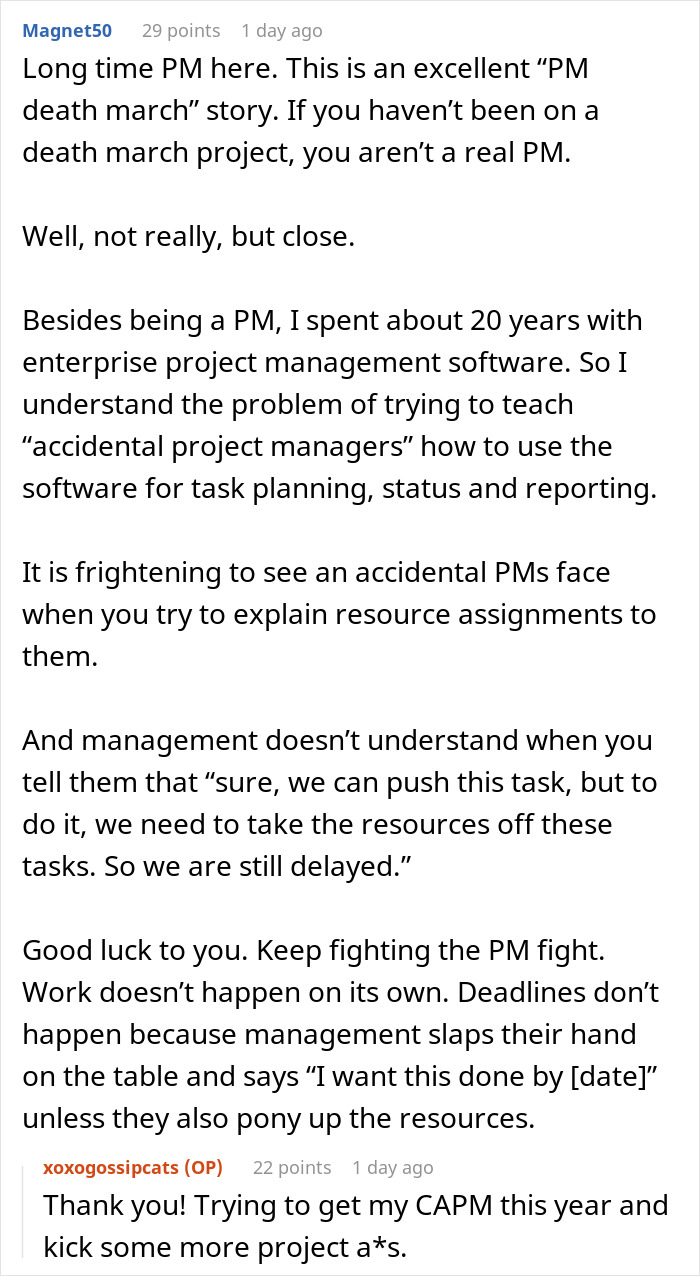

Image credits:juan mendez (not the actual photo)
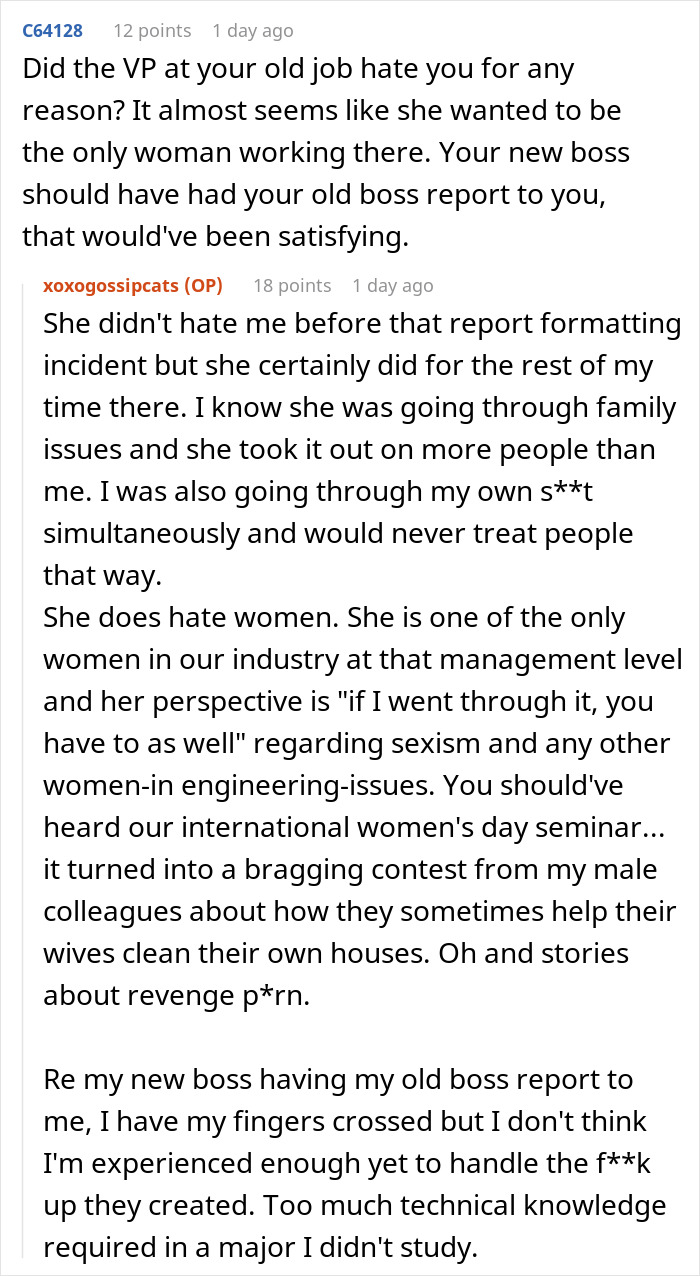
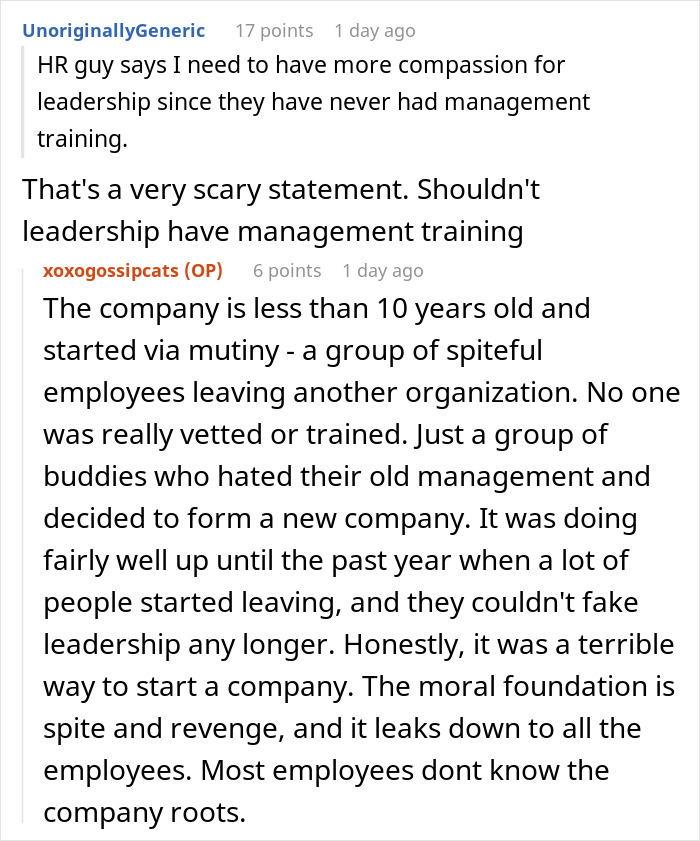
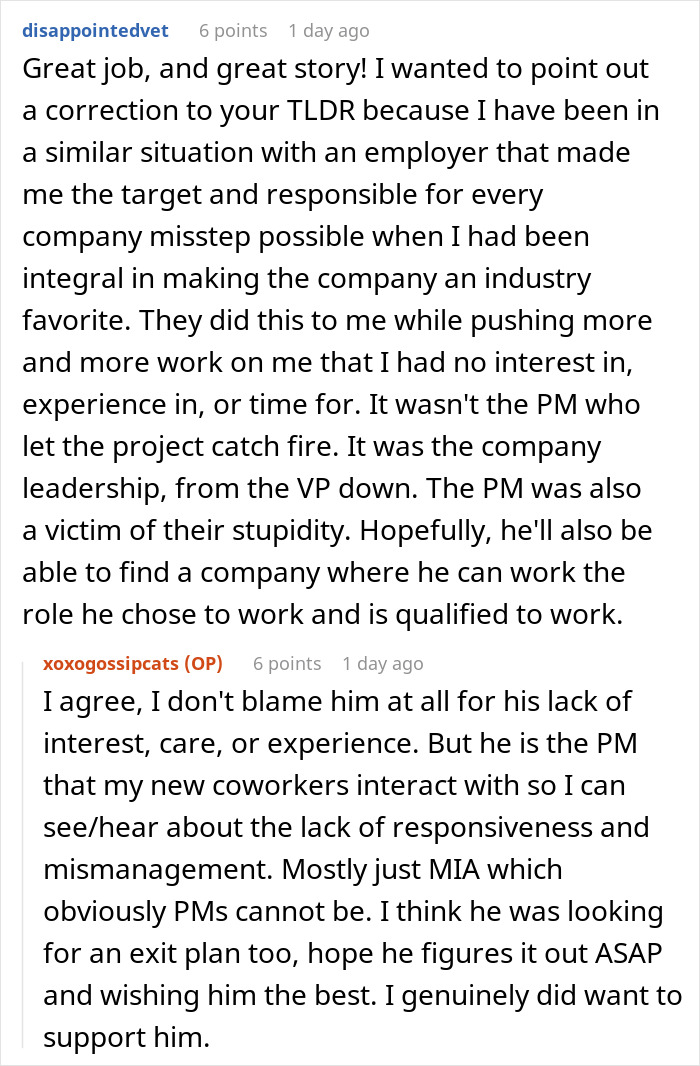

Thanks! Check out the results:
Relationships